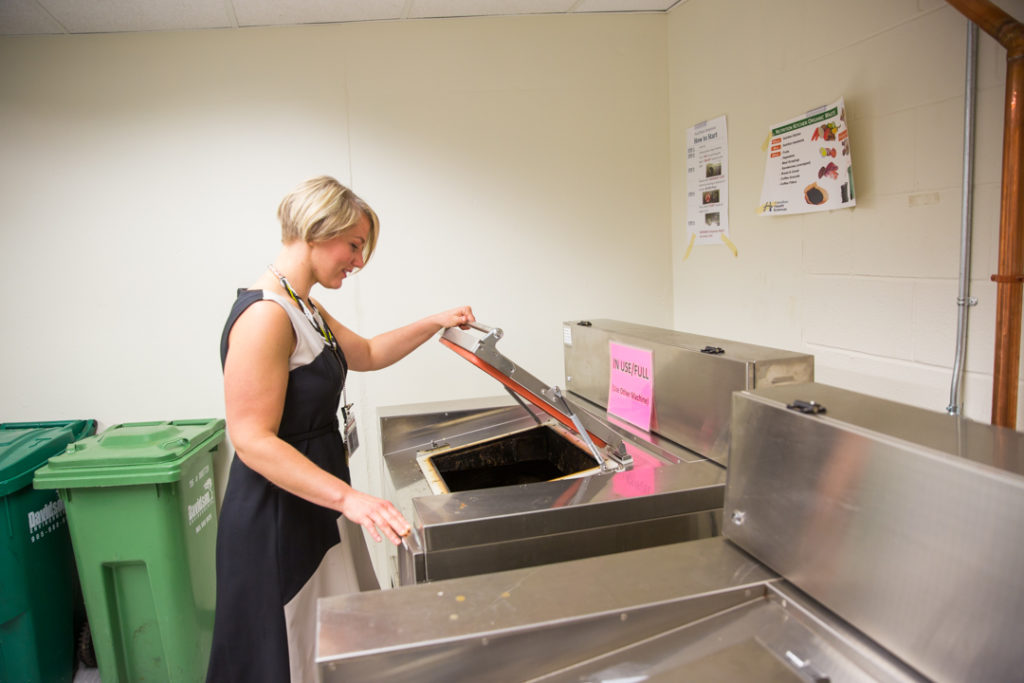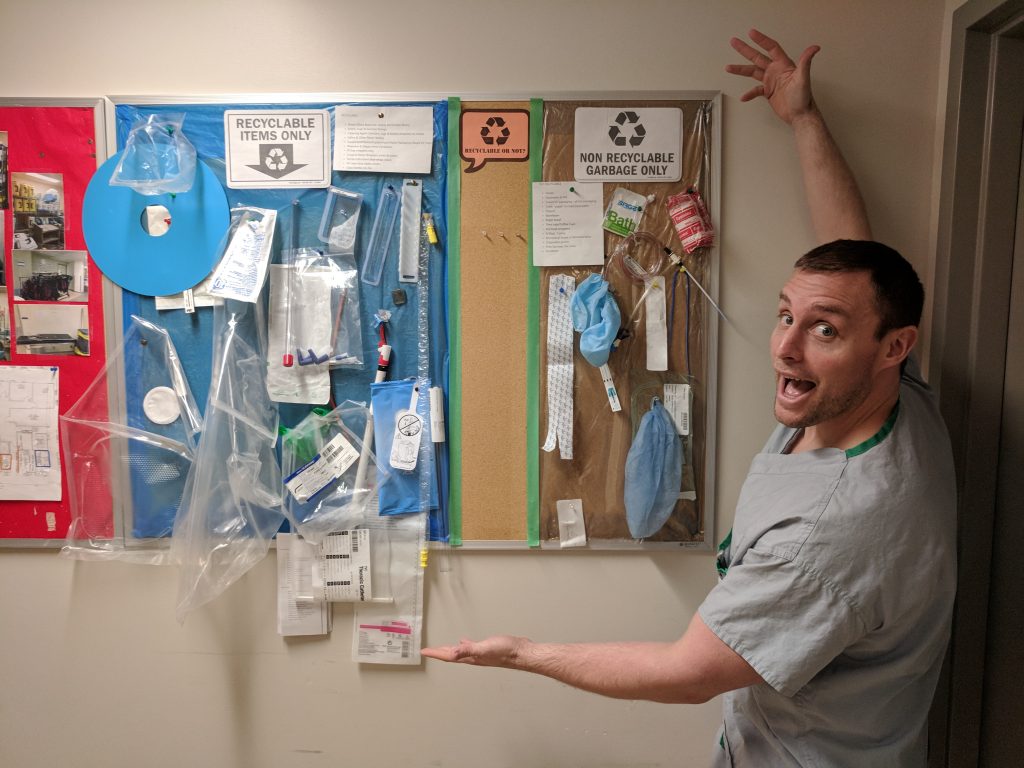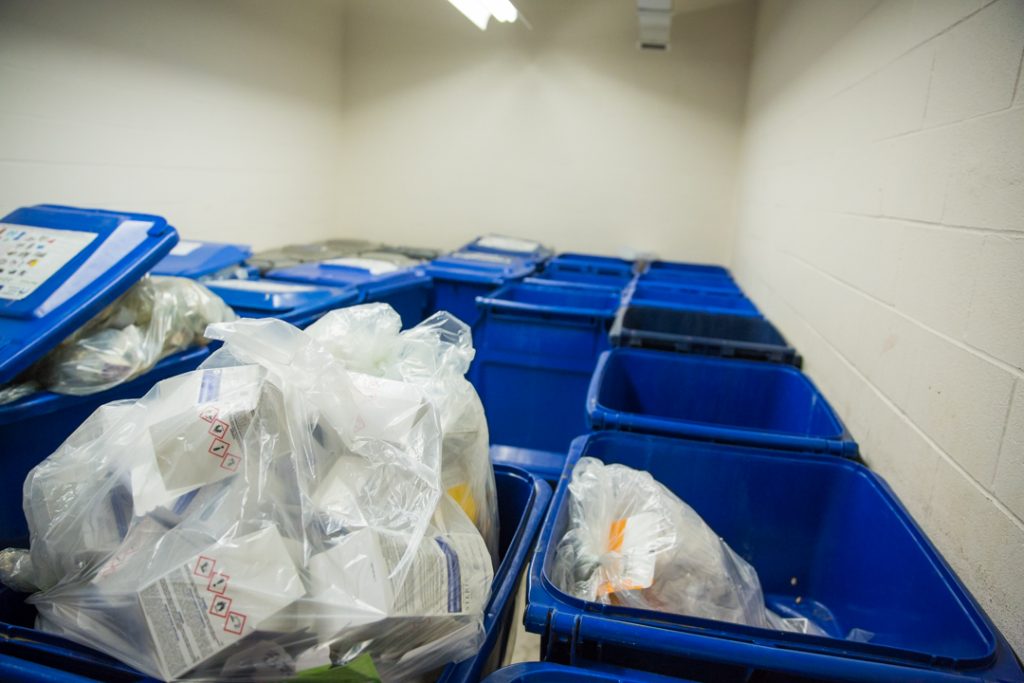
Greening our hospital
Each day, staff, physicians and volunteers at Hamilton Health Sciences (HHS) work hard to reduce waste, improve energy efficiency, recycle and use resources responsibly.
“We’re committed to reducing our environmental impact,” says Victoria Brzozowski, waste management coordinator at HHS. “By holding ourselves to a high standard, we hope to help make Hamilton a healthier place to live.”
In 2017 we implemented two successful programs to reduce our environmental footprint, recycling in operating rooms (OR) and recycling and reduction of food waste in Nutrition Services.
“By holding ourselves to a high standard, we hope to help make Hamilton a healthier place to live.”
“In a hospital, it can be challenging to decide what products or packages are recyclable and which ones are waste,” says Victoria. “Many of the materials we use may appear recyclable, but are not.”
Education plays an important role in reducing some of the complexities.
Recycling in our operating rooms
Staff from our OR’s at the Hamilton General Hospital (HGH) and McMaster University Medical Centre (MUMC) worked together with the waste management department to simplify recycling of clinical waste. They created education modules and training, plus implemented a blue bag program that was cost neutral.
“In the OR there are thousands of different items and packages,” says Lucas Murphy, an HGH nurse who helps with the OR recycling efforts. “Since beginning our waste reduction program, people can now make informed decisions about why they need to recycle, and what needs to be recycled.”
To assist with educating staff, Lucas developed a bulletin board system. If anyone is unsure whether or not a package or product can be recycled, they pin it to the bulletin board for Lucas to review. If the item is recyclable, it’s moved to the ‘recycle’ column; if not, it’s moved to the ‘do not recycle’ column. In each case, he attaches a memo to explain why the item was moved.

He says there have been efforts by staff to create a recycling program for a number of years, but these efforts didn’t get the same traction. “I think it has a lot to do with our Continuous Quality Improvement (CQI) initiative, which gets people talking about our everyday processes and finding more efficient solutions.”
These recycling efforts now help to divert an additional seven tonnes of OR recycling from landfills each month.
Reducing waste in Nutrition Services
A similar success is also occurring in our Nutrition Services department. We began recycling all food packages served to our patients, and using dehydrators to reduce the overall volume of food waste returned from patient meal trays.
“People went from dumping everything into one bin to separating waste into four different bins,” says Victoria.
This diverts over 180 tonnes of food waste from landfills each year.

Our nutrition services staff have also begun reusing the cardboard trays that patient meals are shipped on. Each tray carries 16 meals, and since it can be reused three to four times, it allows us to divert an additional 36 tonnes of cardboard from landfills each year.
Our commitment to sustainable environmental practices has been recognized as a sector success by Sustainable Hamilton Burlington with two awards – the Best First Time Sustainability Report Award and the Environmental Initiative Award, which we received based on the programs implemented in the OR and Nutrition Services.
“These awards not only acknowledge the everyday efforts of our staff, but show the impact their work has beyond the hospital, across the communities we serve.”
To learn more about our commitment to sustainability, read our Environmental Sustainability Report.
